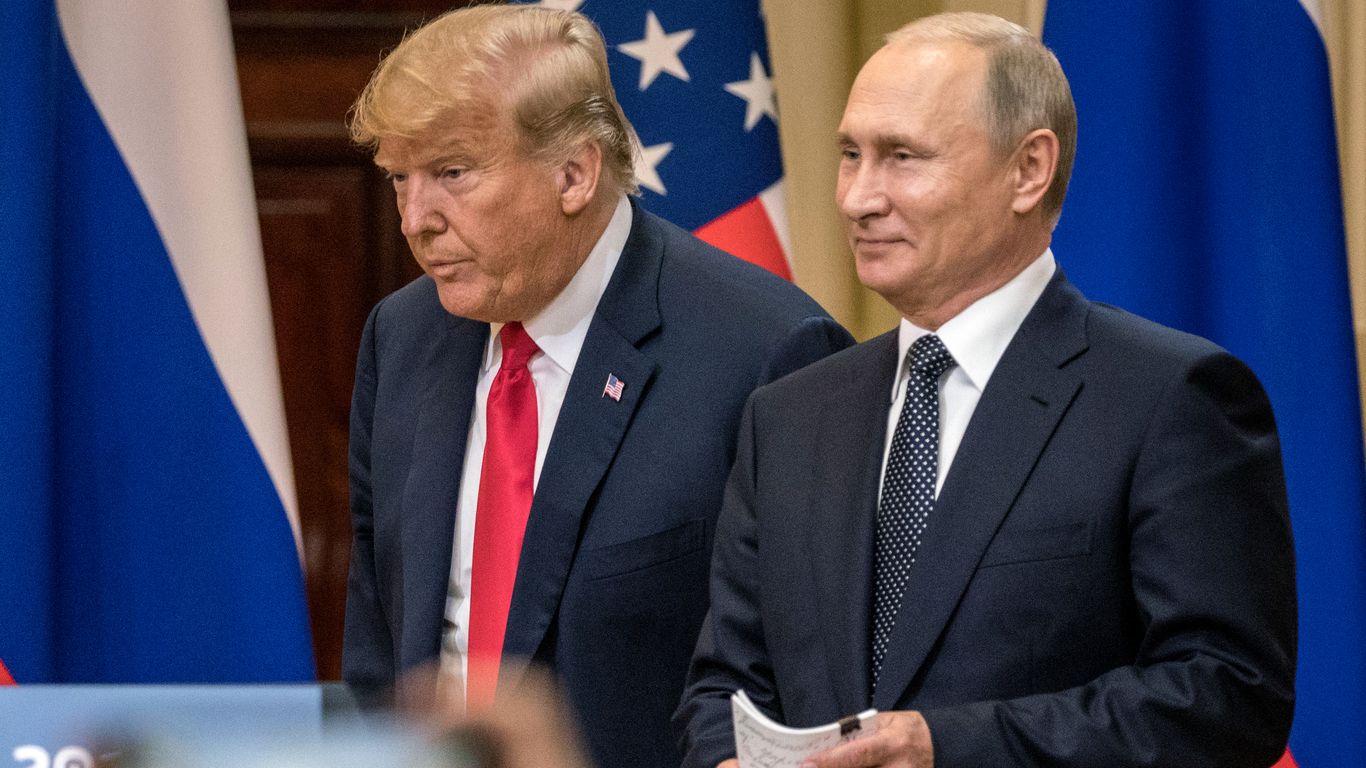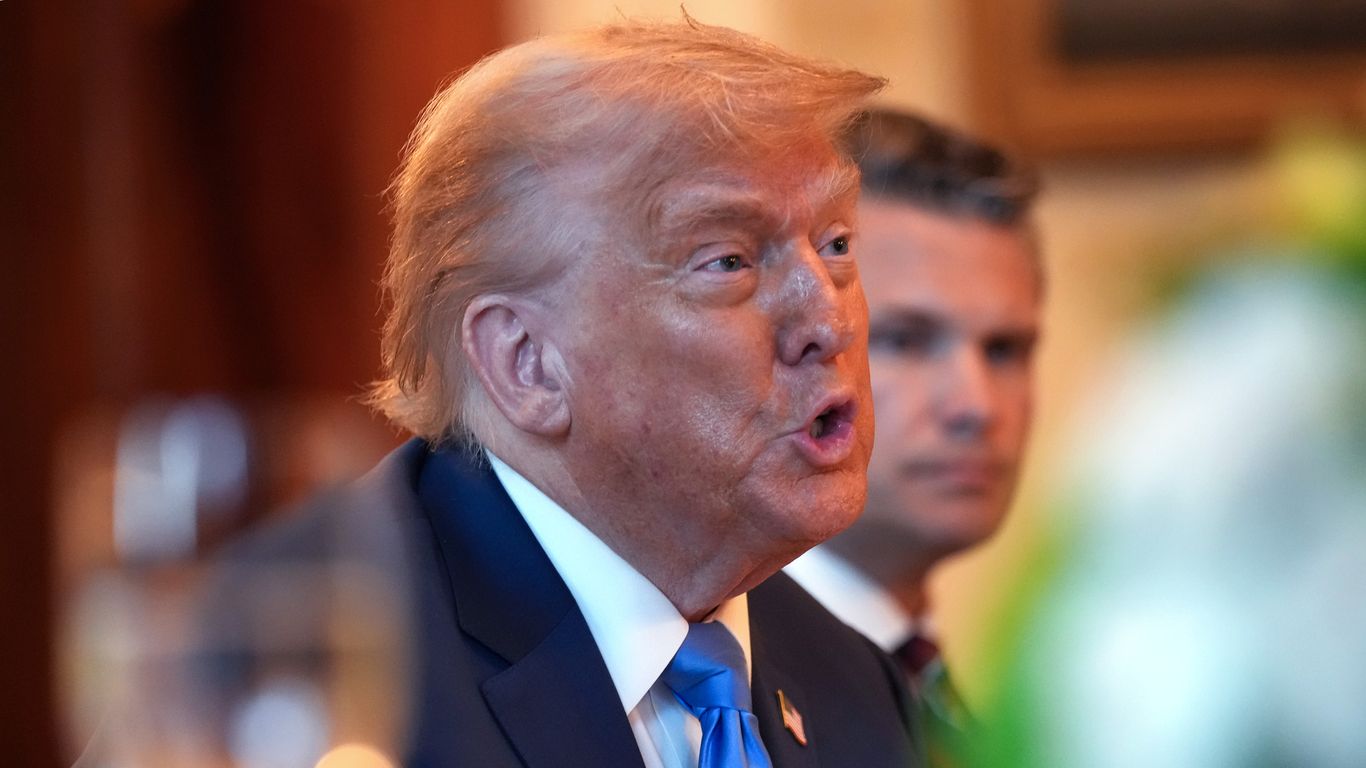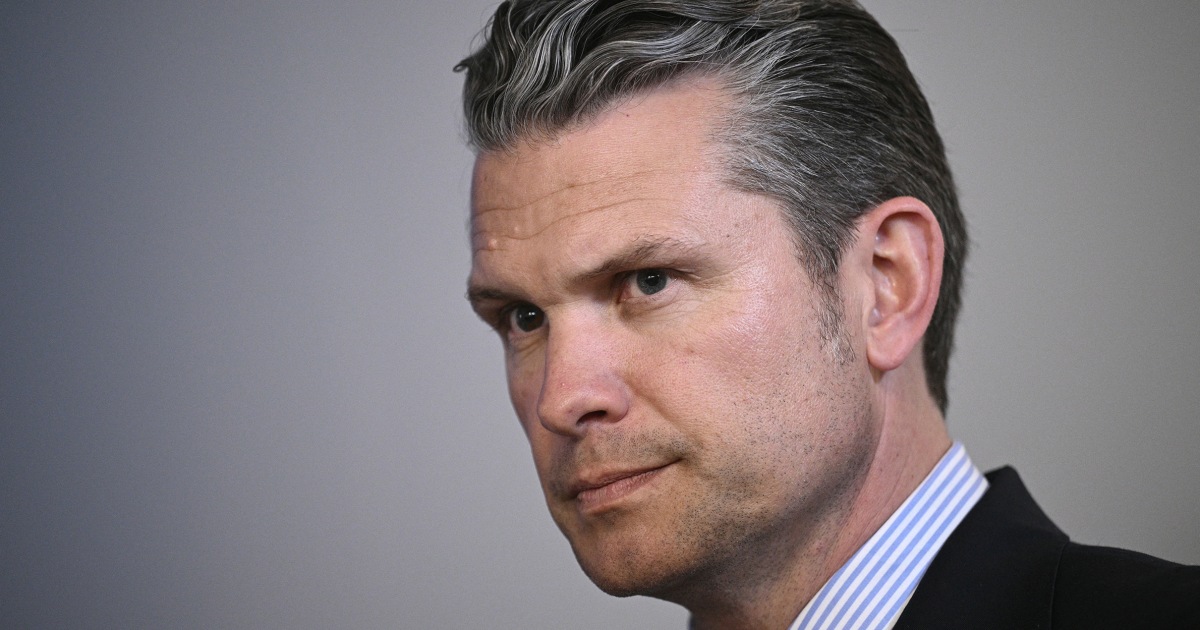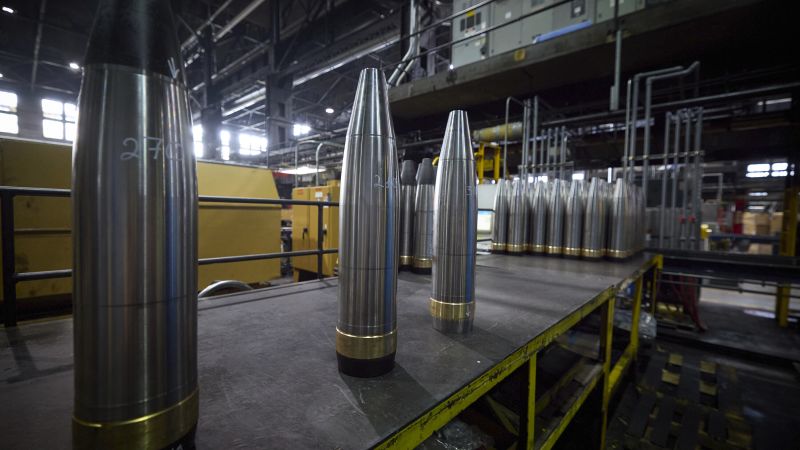Ukraine's Heaviest Attack and Trump's Criticism of Putin

Ukraine's Heaviest Attack and Trump's Criticism of Putin
The ongoing conflict between Ukraine and Russia has escalated to new heights as Ukraine suffers its heaviest attack yet. This attack comes just days after US President Trump reversed a suspension on weapons shipments to Kyiv and heavily criticized Russian President Putin.
The Impact of Trump's Actions
Trump's decision to resume weapon shipments to Ukraine has been met with mixed reactions. While some see it as a bold move in support of Ukraine's fight against Russian aggression, others view it as a provocation that could potentially worsen the already tense situation between the two countries.
The Power Struggle Between the US and Russia
With Trump's criticism of Putin, the power struggle between the US and Russia is once again in the spotlight. The US has long been at odds with Russia over its annexation of Crimea and involvement in the
About the People Mentioned
Donald Trump
Donald John Trump, born June 14, 1946, in Queens, New York, is an American businessman, media personality, and politician. He graduated from the University of Pennsylvania’s Wharton School in 1968 with a degree in economics. In 1971, he took over his family’s real estate business, renaming it the Trump Organization, through which he expanded into building and managing skyscrapers, hotels, casinos, and golf courses. Trump gained widespread fame as the host of the reality TV show *The Apprentice* from 2004 to 2015, which helped establish his public persona as a successful entrepreneur. Trump entered politics as a Republican and was elected the 45th president of the United States, serving from 2017 to 2021. His presidency was marked by significant policy actions including tax cuts, deregulation, the appointment of three Supreme Court justices, renegotiation of trade agreements (notably replacing NAFTA with the USMCA), and a focus on immigration control including border wall expansion. He withdrew the U.S. from international agreements such as the Paris Climate Accord and the Iran nuclear deal, and engaged in a trade war with China. His administration’s response to the COVID-19 pandemic was criticized for downplaying the virus’s severity. Trump was impeached twice by the House of Representatives—first in 2019 for abuse of power and obstruction, and again in 2021 for incitement of insurrection—but was acquitted by the Senate both times. After losing the 2020 election to Joe Biden, Trump challenged the results, culminating in the January 6, 2021, Capitol riot. He remains a central figure in American politics, having won the 2024 presidential election and returned as the 47th president in 2025, continuing to promote policies aimed at economic growth, border security, and military strength[1][2][3][4].
Vladimir Putin
Vladimir Putin is the current President of Russia, a position he has held for multiple terms since 2000, with a brief interlude as Prime Minister from 2008 to 2012[1][3]. Born in Leningrad (now Saint Petersburg) in 1952, Putin began his career in the Soviet Union’s security services, joining the KGB in 1975 and rising to the rank of Lieutenant Colonel by the time he left in 1991, following postings in East Germany and Leningrad[4]. After the Soviet Union’s collapse, he transitioned into politics, serving as an adviser to Saint Petersburg Mayor Anatoly Sobchak and later moving to Moscow, where he held various administrative roles under President Boris Yeltsin[6]. Putin was appointed Prime Minister in August 1999 and became acting President when Yeltsin unexpectedly resigned that December[3][6]. He won his first presidential election in March 2000, promising to stabilize Russia’s economy and political system after the tumultuous 1990s[3][7]. During his initial terms, he centralized power, reasserted federal control over Russia’s regions, and curtailed the influence of the country’s oligarchs through legal and economic measures[7]. Putin was re-elected in 2004 but, due to constitutional term limits, stepped aside in 2008, becoming Prime Minister under his successor Dmitry Medvedev, while retaining significant influence[3]. Constitutional amendments later extended presidential terms, and Putin returned to the presidency in 2012[1]. Putin’s time in office has been marked by assertive foreign policy, including military interventions in Syria in support of President Bashar al-Assad and the 2014 annexation of Crimea, which led to international sanctions[1]. Domestically, his tenure has seen increased state control over media, the suppression of political opposition, and constitutional changes consolidating executive authority[1]. In 2022, Russia’s full-scale invasion of Ukraine triggered a major international crisis, further isolating Russia from the West and prompting widespread condemnation[1]. As of 2025, Putin remains a dominant figure in Russian politics, having secured another term in office through constitutional changes that allow him to potentially remain president until 2036[1]. His leadership continues to shape Russia’s domestic trajectory and its role in global affairs, amid ongoing conflict in Ukraine and strained relations with NATO and Western countries[1].
About the Organizations Mentioned
US
The query seems to be about providing a summary of the organization "US," which could be interpreted as the United States government or a specific entity within it. However, without a clear reference to an "organization" named "US," I will provide a comprehensive overview of the United States government, focusing on its structure, history, achievements, current status, and notable aspects relevant to business and technology. ## Overview of the United States Government The United States government is a federal republic with a system divided into three branches: the legislative, executive, and judicial. This structure is designed to provide checks and balances on each branch. ## History The U.S. government was established in 1789 under the Constitution, which outlines the framework of the federal system. Over time, the government has evolved through numerous amendments and reforms, shaping policies and laws that impact various sectors, including business and technology. ## Key Achievements - **Economic Growth**: The U.S. has been a global leader in economic growth, innovation, and technological advancements, fostering a strong business environment. - **Technological Advancements**: The government has supported significant technological developments, such as the internet and space exploration, through funding and regulatory frameworks. - **Regulatory Frameworks**: Agencies like the Federal Trade Commission (FTC) and the Federal Communications Commission (FCC) play crucial roles in regulating industries and ensuring consumer protection. ## Current Status Currently, the U.S. government is engaged in various initiatives to address contemporary challenges such as climate change, cybersecurity, and healthcare reform. The government also continues to evolve its organizational structure, with ongoing discussions about the role of the executive branch, as seen in initiatives like Project 2025. ## Notable Aspects - **Project 2025**: This initiative, backed by the Heritage Foundation, aims to restructure the federal government to align with conservative ideals, potentially impacting civil rights and executive branch powers. - **Standards and Regulations**: The U.S. Standards Strategy,
Russia
Russia, officially known as the Russian Federation, is not an organization but a sovereign state and the largest country in the world by land area, spanning Eastern Europe and northern Asia. With a population of nearly 144 million as of 2025, Russia ranks ninth globally by population and is characterized by significant ethnic diversity, with over 80% identifying as ethnic Russians and numerous minority groups contributing to its cultural tapestry[4]. The capital, Moscow, is a major global city and the country’s political, economic, and technological hub. ## Historical Overview Russia’s history is marked by its transformation from the Tsarist Empire to the Soviet Union and, after its dissolution in 1991, to the present-day Russian Federation. The post-Soviet era saw Russia’s integration into the global economy, though it retained a centralized political system with power concentrated in the presidency[7]. The country’s economy, historically resource-based, relies heavily on oil, gas, and minerals, but has also developed significant industrial, technological, and military sectors. ## Economic Profile and Key Achievements Russia’s economy is the world’s twelfth-largest consumer market, with about 70% of GDP driven by domestic consumption[1]. It has a “very high” Human Development Index ranking and boasts the fifth-highest number of billionaires globally, though income inequality and regional disparities remain pronounced[1]. Major achievements include surviving extensive Western sanctions after the 2022 invasion of Ukraine, maintaining economic stability through increased military spending, and pivoting energy exports to Asia[1][5]. The country has also played a leading role in the BRICS bloc, advocating for reforms in the international financial system and promoting technological innovation among developing economies[6]. ## Current Status and Challenges As of late 2025, Russia’s economy is experiencing a pronounced slowdown, with GDP growth cooling to around 1% after robust expansion in 2023–2024[2][3]. High military expenditure (












